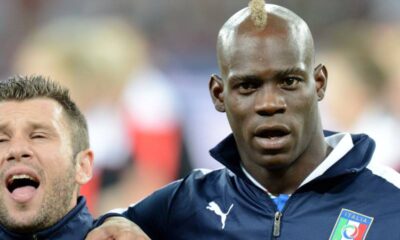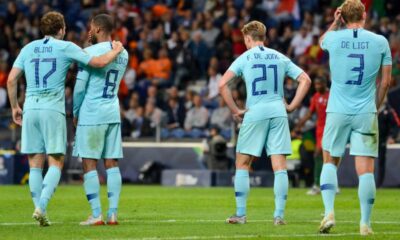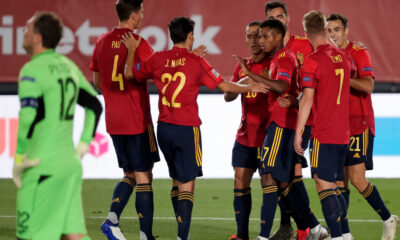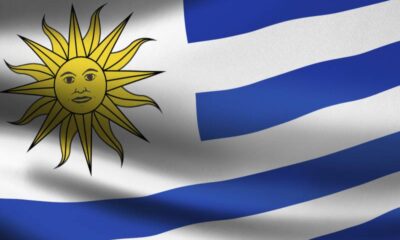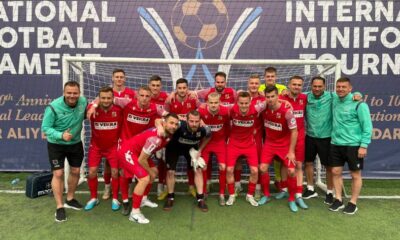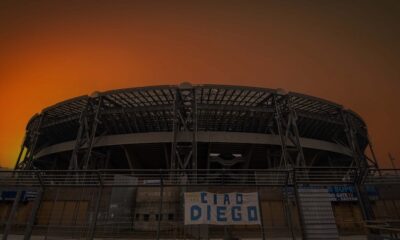Football
The story of Roberto Mancini: The prodigy who, with his best friend, led a revolution in Italian football (Part 1)
“Italy, this is the apocalypse,” was the headline in Italy’s best-known sports newspaper La Gazzetta dello Sport the morning after the four-time world champions failed to qualify for the 2018 World Cup. It was the first time in 60 years that they were not going to the world’s biggest sporting event.

“Italy, this is the apocalypse,” was the headline in Italy’s best-known sports newspaper La Gazzetta dello Sport the morning after the four-time world champions failed to qualify for the 2018 World Cup. It was the first time in 60 years that they were not going to the world’s biggest sporting event. ” Whoever comes will have to dig themselves out of the rubble and work for Euro 2020,” the article said. No one could have predicted that rebuilding from the rubble would be so good and so fast.
Roberto Mancini is the architect of this revolution. The man who is the personification of Italian football. For better or worse. Intelligent, passionate, emotional, confrontational, tactical, technical, joyful but, unlike Catenaccio, always good looking. But few know that he was assisted by his great friend Gianluca Vialli.
Mancini had already made history at Euro 2020 before the final. Italy’s win in extra time of the eight-final against Austria meant that Mancini’s charges reached a record of 31 consecutive matches without a loss, the most in Italian history.
It is now 34 matches, by the way. The Azzurri are therefore just one game away from equalling the record held concurrently by Brazil and Spain. These teams have not lost 35 consecutive matches.
Pozzo and Marcello Lippi won the World Cup. It would be an honour for me to equal them,” Mancini said after equalling the record.
Now he has also done a great thing. He won the European Champions Cup for his nation for the first time since 1968, only the second time in history.
A prince and a miracle
Mancini’s story actually begins five months before his birth, for on 9 July 1964, Gianluca Vialli was born in Cremona in northern Italy. Mancini was born on 27 November 1964, 400 km south in Lesi.
Mancini was a special child from the very beginning. A few minutes after his birth he was pronounced dead due to a blocked trachea, but the doctor gave him a blow to the face and poured cold water on him, this woke little Roberto from his sleep.
These two young people could not have had a more different upbringing. Vialli, the son of a self-made millionaire, grew up in a castle in northern Italy, while Mancini grew up in a small, modest house in the quiet Campanian town of Roccadaspide.
If Vialli was a prince in his castle, Mancini was a prodigy on the football field. The child, who grew up in a town of six thousand, was pursued by Italy’s leading clubs from the age of 13. As a teenager, he signed for Bologna. Soon afterwards, AC Milan were interested in him after he impressed in trial training sessions, but his contract was sent to the wrong address.
In September 1981, three months before his 17th birthday, Mancini made his first appearance for Bologna in Serie A. In his first season he scored 9 goals and played 30 games.
Talent, emotion, passion – he had it all from an early age. Once he even locked himself in the dressing room after the club refused to let him go to an under-21 national team meeting. It was in Italy’s youth team that he first met Vialli.
“Roberto has been my hero since I was 14,” Vialli said recently.
At the end of that season, Sampdoria thought they had seen enough and decided to spend over 65 million crowns – an incredible amount of money at the time – to bring in the then 18-year-old. It turned out to be money well spent, as he spent 15 seasons at the club and became a legend there.
In 1984, Vialli, who had scored 10 goals in Serie B, joined Sampdoria and a wonderful friendship was formed. The pair earned the nickname “the twins”. Together they won 4 Coppa Italia, the Cup Winners’ Cup and one Serie A title.
But then they went their separate ways. Vialli left for Juventus, later to join Chelsea. Mancini still won a fifth Italian Cup for Sampdoria in 1994. Since then, the club has not won a trophy. Mancini finally left Sampdoria in 1997. He still holds the record for most games played and most goals scored for the club.
Mancini was a creative and technically gifted number 10 player who worked hard on the ball and already showed managerial qualities on the pitch. He organized and motivated his teammates, and was also constantly arguing with the referees.
After years at the club, he was almost like a son to club president Paolo Mantovani. He regularly attended interviews and board meetings. He also had his say in transfers. At the age of twenty-seven, he is said to have taken part in the final meeting after which coach Sven-Göran Eriksson came to the club.
Eriksson subsequently took Mancini with him to Lazio Roma, but the new environment did not make him feel any better: “I took him to Lazio and he wanted to be manager, even though he was a player,” Eriksson said in 2011. “He was a coach, he was a dispatcher, he was a bus driver, everything. At Sampdoria he wanted to check before training that everything was in place.”
Source: OPTUS SPORT

